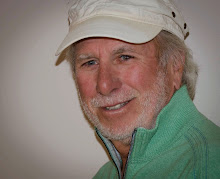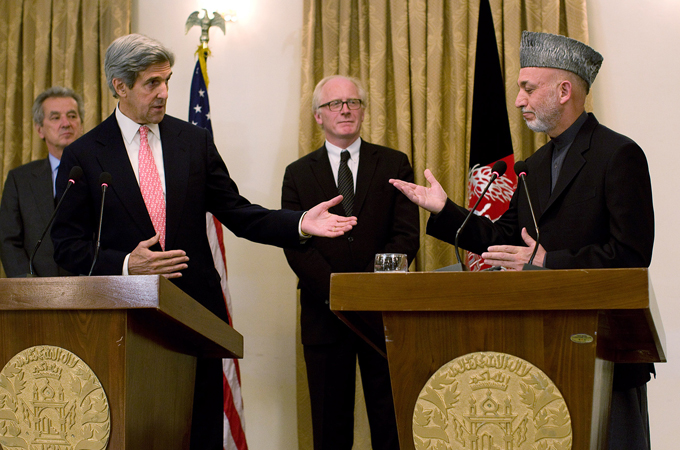Power Struggle Over Afghanistan
Former UN envoy says if negative trends are not reversed through better coordination, Afghanistan faces civil war.
Last Modified: 18 Jan 2012 12:43On March 6, 2010, I boarded my last flight out of the Afghan capital as the UN envoy.
Two years had passed since my arrival in Kabul. At that time the most urgent task had been to bring some order to a chaotic international engagement in Afghanistan. I had arrived with hopes of being able to make a difference and help shape a strategy that could finally work. Now I was tired and bitter: tired from two dramatic years of a constantly worsening security situation, political disagreements and personal rivalries, as well as the media attention that followed it all; bitter from the strong feeling that I had not achieved what I had come to achieve.
The previous day, I had said farewell to President Karzai during a small ceremony in his palace. Our relationship had been close and friendly for almost two years. The farewell ceremony had been a rather formal event. Karzai was disappointed in me because he believed I had not stood up strongly enough against the United States and other foreigners who had interfered so blatantly in the presidential elections. And I was disappointed in him because he had become more dependent on the warlords and powerbrokers that had destroyed Afghanistan in the past, and should not be allowed to contaminate its future.
But the most important reason for my bitterness was my ever-growing disagreement with Washington's policy towards Afghanistan, which was increasingly dominated by military strategies, forces, and offensives. Urgent civilian and political requirements were treated as appendices to the military tasks. The UN had never been really involved or consulted by Washington on critical strategy-related questions, nor had even the closest NATO partners. More importantly, Afghan authorities had mostly been spectators to the formation of a strategy aimed at solving the conflict in their own country.
During a visit to Washington shortly after the Obama administration had taken over, one of the senior ministers of Karzai's government sent me a text message.
"Neocolonialism," it read. That was all. In my opinion, the US strategy was doomed to fail.
Narrow outlook
As my plane circled over Kabul, gaining altitude before flying over the mountains that surround the city, I looked down on the capital for the last time. Kabul had become a fortified city with a constant proliferation of concrete walls, sand bags, barbed wire, road- blocks, security checks, bomb-sniffing dogs, and speed bumps. The city I was leaving was very different from the one in which I had walked freely around during my first visit in September 2003. As a result of the worsening security situation, the ability of the UN and other civilian organisations to operate across the country had become severely limited.
I have long been fascinated by Afghanistan's beauty and by its people, and I have missed them both every day since I left the country. During my many flights around the country, I used to look out of the window to see how much snow had fallen on the mountain ranges and to see the colour of the ground beneath me. Would the crops be sufficient this season? Would there be more food shortages, or would there be floods? Would we reach vulnerable areas with emergency aid in time?
On a helicopter trip over the central Bamiyan province, I could see a man and a woman with their donkey, high up on a mountain ridge. We flew almost close enough to see their faces, and still the distance between us felt indescribable. Voter registration for the presidential and provincial elections was taking place and my days were filled with challenges related to the election process. The two people below me had far more important concerns than how they would get their registration documents. We lived so close to each other, but we existed in two very different worlds.
In so many meetings with foreign dignitaries, I had to come back to some basic facts to illustrate the challenges we were facing. Afghanistan is a country with weak and sometimes non-existent institutions. Its infrastructure is so poor that 3,000 donkeys were hired to bring election material to remote parts of the country during the 2009 elections. The illiteracy rate is still around 70 per cent, and in remote villages, it can be hard to find anybody who can read or write. Afghanistan lacks the middle class that is required for sustainable development to take place quickly. A significant part of the country is engulfed in an armed conflict. All of this combined makes rapid progress impossible.
Yet, we have been eager to set deadlines that would permit us to withdraw our international engagement and declare success. As a result of our inability to understand the country and therefore to formulate workable strategies, support for our engagement in Afghanistan has declined. We are trapped between an impatient public and a growing insurgency in a country where quick fixes do not exist.
We have become impatient and so have the Afghans. Dr Sima Samar, the leader of the Afghan Independent Human Rights Commission (AIHRC), wrote to me in late 2010 that the Afghan people are losing hope. More than a year later, they have little hope left. So many sacrifices have been made in terms of lives and suffering; yet, a solution to the conflict seems to have slipped even further away.
My two years as UN envoy were - at that time - the two most dramatic years since the fall of the Taliban in 2001. Since leaving my post, I have argued that if the existing negative trends could not be reversed, they would become unmanageable and it could be too late. Today, the negative trends seem to continue.
Certainly, the additional 60,000 international troops - an astonishing number - that arrived in Afghanistan since President Obama was inaugurated have stemmed the growth of the insurgency in some parts of the country. But the Taliban has not been defeated, not even significantly degraded. Afghanistan is going through a period of profound uncertainty.
The tension between Karzai and key partners in the international community has increased. The conflict between the government and the National Assembly led to a political standstill, threatening the entire political system. The friction between Afghanistan's ethnic groups has intensified. And efforts to bring the Taliban into political talks have not brought tangible results, but experienced a damaging blow when the Chairman of the High Peace Council, Burhanuddin Rabbani, was killed in September 2011.
I still hope that it is not too late to turn the trends and to find a solution to the conflict that brings peace and protects the progress and reforms that have been made over the last decade. But to find this solution would require very significant changes in the way we approach Afghanistan and the conflict. We must recognise that - even after 10 years - short-term deadlines will not lead us closer to, but further away from, a solution to the conflict. And we must place political initiatives above military offensives. There is still - in spite of the setbacks - no acceptable alternative to a policy of dialogue and reconciliation with the insurgency.
At the Bonn conference in December 2001, all the Afghan participants managed - after 20 years of conflict - to come together and agree on a new interim administration, with the assistance of Afghanistan's neighbours. Ten years later, a policy of national unity and a strong involvement of the country's neighbours are urgently needed. It may be unappealing to many - inside and outside Afghanistan. Perhaps, it is too late and no longer even realistic. But the only alternative could well be a civil war of the kind we experienced in the early 1990s, which led to the birth of the Taliban movement.
Kai Eide, a senior Norwegian diplomat, is the former United Nations Special Representative to Afghanistan (2008-2010).
This piece is based on an excerpt from his new book Power Struggle over Afghanistan, published on January 18 by Skyhorse Publishing, Inc.
The views expressed in this article are the author's own and do not necessarily reflect Al Jazeera's editorial policy.
Source: Al Jazeera


No comments:
Post a Comment